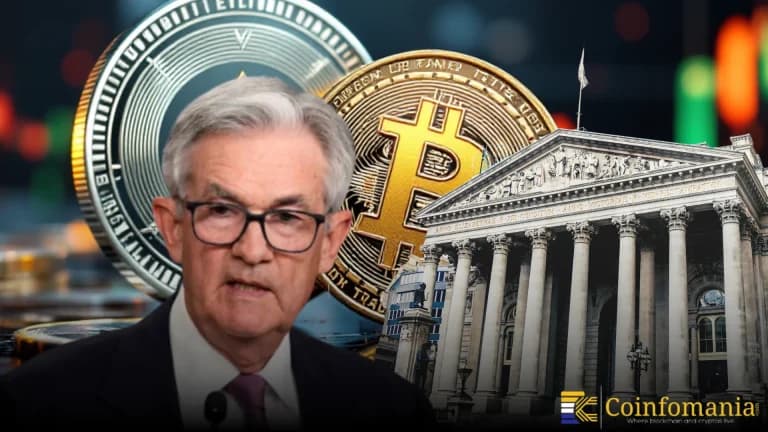CZ Calls Out New York Times Over Trump Memecoin Dinner Inquiry, ‘Cousin’ Reference, and Alleged Smear Campaign Targeting Binance
Binance founder CZ denies any link to Trump memecoin dinner attendee Tianying He, calling NYT inquiry baseless and misleading.

Quick Take
Summary is AI generated, newsroom reviewed.
CZ denied knowing Tianying He before the Trump memecoin dinner controversy surfaced publicly.
NYT questioned CZ’s ties to LuckyFuture and Sky, citing a social media post interaction.
Crypto users explained “大表哥” means “bro” or “dude,” not an actual family connection with CZ.
On June 6, Binance founder Changpeng Zhao (CZ) responded on X to a New York Times inquiry about the Trump memecoin dinner. The NYT asked about his alleged connection with Tianying He, aka “Sky.” He was an attendee of the May 22 dinner at Trump’s Northern Virginia golf club. The event invited the top 220 holders of the $TRUMP token. CZ clarified that he did not know Sky at the Trump Dinner. CZ said he first saw Sky’s post and followed him afterwards. He denied any personal or business ties with Sky or his company, LuckyFuture, stating this was a baseless attempt to stir dramatic stories.
NYT Questions Draw Pushback from CZ
The NYT reached out to CZ with two key questions. One questioned any personal or family link between CZ and Tianying He. The second asked whether LuckyFuture, Sky’s firm, had any business connection with Binance. CZ publicly dismissed both implications. He posted: “I didn’t know who Sky was when I saw his post with a BNB Chain logo.” He added that their interaction began only after Sky reached out following CZ’s own post on perpetual DEXs. According to CZ, no prior discussions had occurred between the two about Trump or American politics.
Trump Memecoin Dinner Raises Eyebrows
The Trump memecoin dinner held on May 22 gathered 220 top holders of the $TRUMP token. Reports revealed that major foreign investors, including Chinese billionaire Justin Sun, attended the event. Justin Sun reportedly invested over $20 million in the memecoin, sparking criticism. Following the announcement, the token surged by 60%, triggering $2.4 billion in on-chain transfers. Critics pointed to potential conflicts of interest and foreign influence. Ethics watchdogs have called for investigations into the gathering. Lawmakers raised concerns over violations of federal ethics rules and the Emoluments Clause.
The “Big Cousin” Misunderstanding
A major part of the NYT’s inquiry centred around Sky’s use of the phrase “cousin” when referring to CZ. One post showed Sky using the Chinese term “大表哥” (dà biǎo gē), which directly translates to “older male cousin.” Crypto users in Chinese communities commonly use this term for CZ as a mark of respect or familiarity. Commenters clarified that it does not imply actual family ties. The term is closer in meaning to “bro” or “dude” in American slang. A user 0xTodd on X wrote, “It’s more like ‘man’ than ‘relative.’ Probably 100K people call CZ cousin.”
Trump Memecoin Dinner: Media Pressure and Crypto Leaders Clash
The exchange reflects rising friction between traditional media and crypto influencers. The NYT questions imply deeper links between CZ, Tianying He, and the Trump memecoin dinner. CZ framed the outreach as an example of insinuation without evidence. He accused the publication of either making assumptions or attempting to provoke controversy. “How desperate do you have to be to make up the story above?” he posted. “Or are you being paid to smear?” With crypto intersecting politics, media attention around events like the Trump dinner party is intensifying. Influencers are increasingly forced to defend themselves in real time on social platforms.
What Lies Ahead for Crypto and Public Scrutiny
The Trump dinner party continues to fuel ethical and legal debates. The growing involvement of major crypto figures and foreign investors in politically linked tokens raises red flags. As regulators and media outlets focus more on crypto’s political ties, industry leaders may face increasing scrutiny. Public reactions, like CZ’s, reflect the tension between crypto’s decentralized nature and centralized narratives in mainstream media. Transparency, verified connections, and fair reporting will likely shape this ongoing tug-of-war. As crypto’s role in global finance expands, interactions like this one will become more common and more contested.
References
Follow us on Google News
Get the latest crypto insights and updates.


